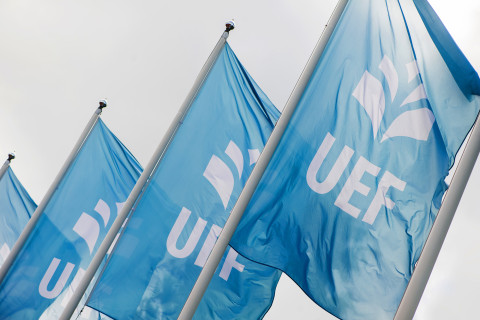The University of Eastern Finland hosted a European Bioeconomy University, EBU, workshop in Joensuu on 15–16 October. The workshop focused on EBU member universities’ future forms of collaboration in education, research and societal interaction with regard to the bioeconomy.
In addition to the University of Eastern Finland, the members of the European Bioeconomy University include the University of Hohenheim in Germany, Wageningen University and Research in the Netherlands, AgroParisTech in France, the University of Natural Resources and Life Sciences (BOKU) in Vienna, Austria, and the University of Bologna in Italy. The founding treaty of the European Bioeconomy University was signed in Brussels this July.
The combined expertise of the EBU member universities constitutes a unique, strong and diverse cluster of competence in the field of the bioeconomy, seeking to raise the level of European bioeconomy research, education and interaction through multidisciplinary and international collaboration.
The University of Eastern Finland is represented in the working group appointed to prepare the activities of the European Bioeconomy University by Professor of Forest Bioeconomy Jyrki Kangas, Head of the School of Forest Sciences, as well as by Coordinator Sari Pitkänen, who is responsible for coordinating the university’s bioeconomy policy.
“In this workshop, we focused on joint activities in bioeconomy education at the Master’s and doctoral levels as well as in the field of lifelong learning. Joint efforts in research were discussed as well. The working group also agreed upon enhancing student and teaching staff mobility between the EBU member universities, which also constitutes a great opportunity for boosting the internationalisation of the University of Eastern Finland,” Kangas notes.
“We also agreed upon further intensifying knowledge transfer relating to our joint innovation activities and research data. Each EBU university brings to the table its own strengths relating to the bioeconomy. The University of Eastern Finland, for instance, is strong in the forest-based bioeconomy and multidisciplinary approaches, whereas the University of Bologna’s strength can be found in, e.g., the blue bioeconomy, and the University of Wageningen’s in, e.g., agriculture.”
“The working group also defined work packages and the universities in charge of them in order to keep the activities moving forward and being put to practice. The University of Eastern Finland is responsible for developing joint bioeconomy education at the Master’s level, and we are also strongly involved in promoting collaboration in doctoral education, which is a work package led by the University of Bologna,” Pitkänen says.
“However, all universities will contribute to all work packages. In research, collaboration largely rests on initiatives made by EBU researchers; the role of the working group is to support and encourage researchers to undertake joint projects. The European Bioeconomy University provides its member universities’ researchers an excellent platform to find new partners and to establish joint consortia when, for example, applying for research funding from the EU.”
Impact at the regional, national and European (EU) levels was also discussed, and various tools and activities that will also engage students were developed. Honouring this theme, a network meeting between the European Bioeconomy University and the University of Eastern Finland's bioeconomy partners in Joensuu was also held during the workshop.
For further information, please contact:
Professor Jyrki Kangas, Head of the School of Forest Sciences, tel. +358 50 344 9888, jyrki.kangas (a) uef.fi
Coordinator Sari Pitkänen, tel. +358 50 363 4540, sari.k.pitkanen (a) uef.fi
